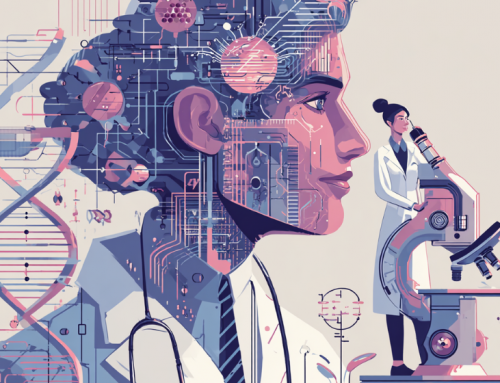
Malcolm Burnley, co-host of the new podcast AI Nation, as featured in Philly Magazine. (Photo by Erin O’Brien)
Top Podcaster Shares Views on the Presence, or Intrusion of Ubiquitous AI
We put this video first on purpose. Take a look.
Shocking yes? Of course, it is. But that is just the first of the eye-opening comments and revelations you will find in this article we pulled from phillymag.com.
Now to be clear the video above is a representation. but it turns out these little killer drones exist and no one is saying whether they have already been in use or not. But there is good news today as well from the article written by Victor Fiorillo as he interviews AI podcaster Malcolm Burnley.
As Fiorillo correctly states: There are lots of (read: way too many) podcasts in this world. But one that has really caught our attention of late is the new podcast about artificial intelligence, AI Nation, a project of WHYY and Princeton University. (Listen here.) On the show, co-host Malcolm Burnley, a former Philly Mag staff writer, breaks the controversial and ubiquitous technology down in a way anybody can understand.
If you arent familiar with Burnley, in 2012 he was the editor of The College Hill Independent when he attended Brown University. His use of the media and how to use it in printed form or on audio podcasts gives him some good insight. We have shared a few of the questions and answers below.
How many times in the course of a day is the average American encountering artificial intelligence?
Burnley: The entire experience of the Internet is so informed by AI. Autocorrect on our phones is one of the biggest examples. Our web searches. E-commerce. Things that pop up in our feeds. Since the Capitol breach, there has been a lot of conversation about how AI and certain algorithms point certain people in different political directions and down various rabbit holes. And then in the physical world, there’s a lot more facial recognition going on than we’re aware of.
Most of us are aware of those concepts and seem to have somewhat signed off on them. However, his next comment on Predictive Policing might raise some eyebrows.
Burnley: One story on the show is about Nijeer Parks. He wound up in jail for 10 days based on a bad facial-recognition match. He didn’t even match the physical description of the person they were looking for. There were so many red flags that warranted further consideration. But instead, he went to jail. There is no transparency with police departments that are using this technology, and we only find out about it if they mess up.
The interview covers a lot of detailed descriptions of various ways smartphone users are tracked and followed or how you are sent ads on a screen when you had only recently mentioned it in passing. But we are all pretty much aware of that. However, some other matters Burnley covers are unsettling. Including the Slaughterdrones. And he pulls no punches when he says:
“AI is already causing and will inevitably cause a lot more inequity. The rich get richer. The poor get poorer.”
Some predictions. Drone deliveries en masse. A robotic car driving me to work. How far off is all this stuff in reality?
Burnley: AI is really good at looking at data, finding patterns, and predicting things, and less good at moving through the physical world. I’ve talked with autonomous car experts, and they said the marketing around those vehicles has greatly outpaced the technology. Most people think we’re still at least a decade away from seeing self-driving cars regularly. And you’re going to see drones repairing bridges and doing other tasks away from people more than seeing them coming through residential neighborhoods. What we’re going to see a lot more of are things like smart earrings and smart necklaces and other devices tracking our biometric data and sharing it with a lot more people. Your doctor. The government. We’re going to see our data increasingly getting sucked up. AI can help improve things, and to do that, you have to let it run loose. But what we don’t know yet is how much it will mess up things.
Remember folks this is all one man’s take on the current state of AI and its future promise, be it good or bad. It’s still just his opinion.
read more at phillymag.com







Leave A Comment